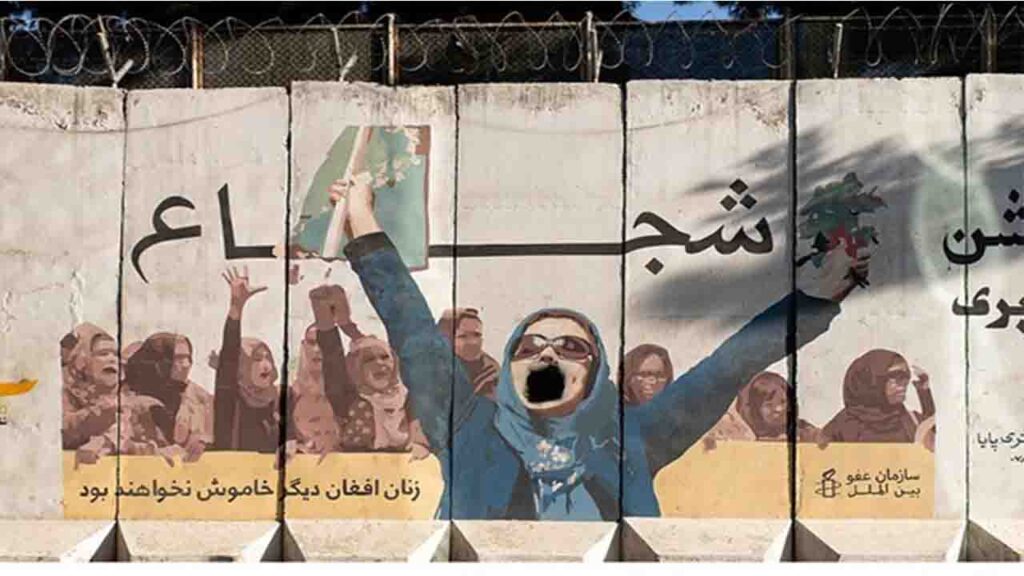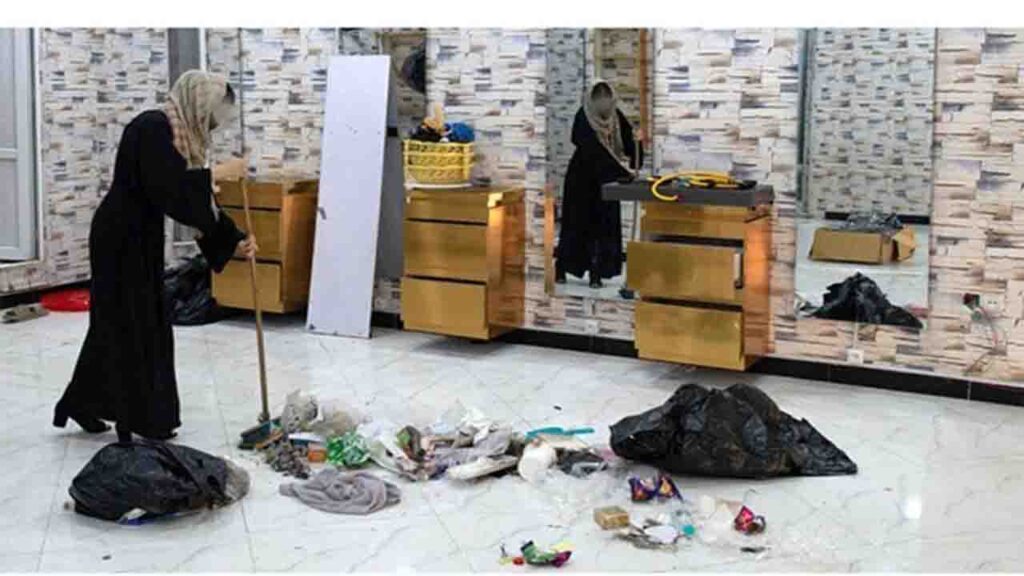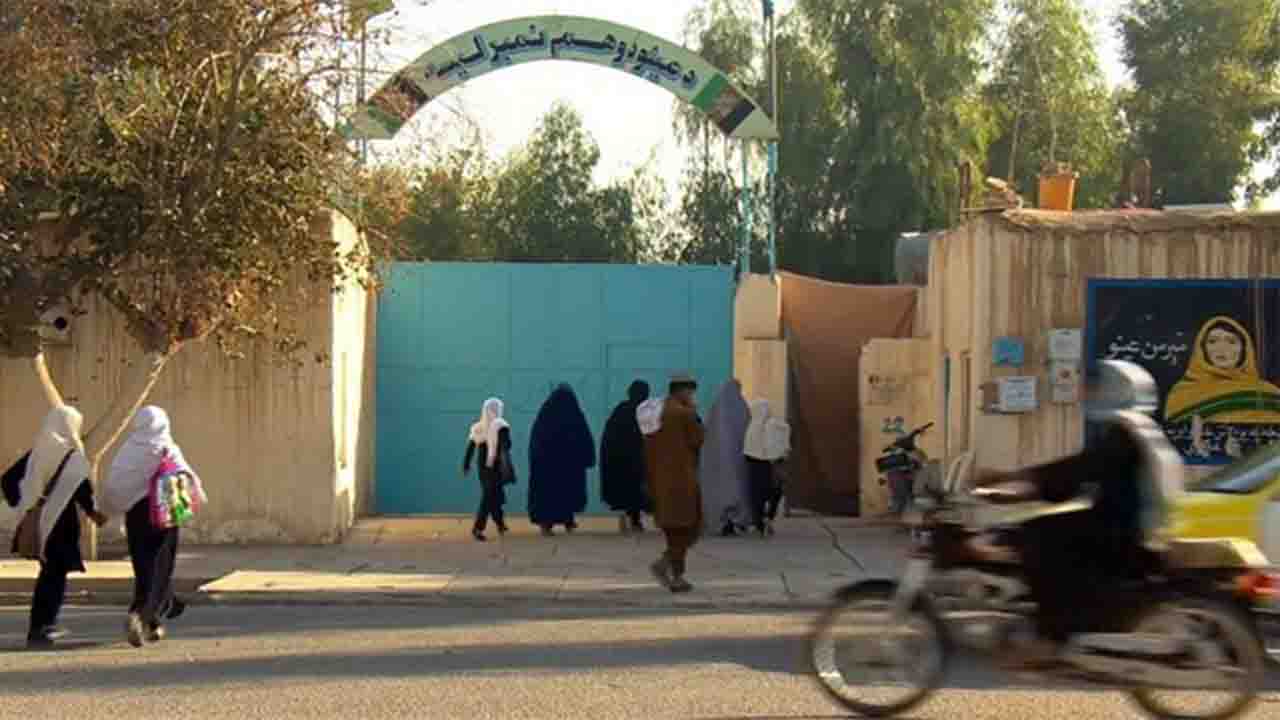Kabul, Afghanistan (Commonwealth Union)_When the Taliban returned to govern Afghanistan after seizing power on August 15th 2021, they promised that all women would be allowed to study and pursue careers albeit within a framework. They announced that women would be very active in society. Two years later, the reality is quite different.

Every promise made by the Taliban has been shattered. Rights taken for granted by women in most countries have been demolished. Women are, speaking plainly, not considered human but rather as slaves to be kept indoors. Education and careers are out of the question. The Taliban government suppresses women with some of the harshest rules in the world under the guise of religious decrees directed by the Taliban leadership.

Not a month after the proclamation of being champions of women’s rights, the Taliban banned girls’ secondary schools. Not put in as many words, the secondary schools were told to open for boys; no mention was made of girls. In that same week, female employees of the Kabul city administration were told their jobs no longer existed and should return home. Only those who had jobs that couldn’t be performed by men, were allowed to remain on the job.
The Taliban’s moral police is named the Ministry of the Propagation of Virtue and the Prevention of Vice. While this Ministry has sweeping powers, the Ministry of Women’s Affairs which was established by the previous government was buried, weeks after the Taliban came into power.
When the Taliban is questioned on the education ban on girls, the reply is a nonchalant “Girl’s don’t want to go to school.” The other excuse is that while the Taliban has numerous plans of opening schools across the country for girls, the security situation does not allow for girls to attend school yet. “Their safety is at risk.” These actions and directives are also explained by the Taliban as a return to traditional Islamic and Afghan values.
If women still held onto the hope that things would get better, they were mistaken. Travel restrictions were imposed on women. Those traveling distances longer than 72 kilometers had to be accompanied by a close male relative. Despite earlier promises, secondary schools were completely closed for girls. Brave and courageous, women took to the streets demanding the right to work and study but were halted by the Taliban police, most often violently including lashings with electric cables and very vicious beatings if detained.
In March this year, the government announced that ‘all students’ would return to school when the academic term began, which also included girls’ schools. Excited and ripe with anticipation, girls made their way to school, only to be turned back a few minutes later when another directive came forth: girls’ secondary schools would remain closed until further notice.
Two months after girls returned home having had their hopes dashed, the supreme leader mandated that all women must cover their faces, except their eyes. Head to toe clothing was made compulsory and males in the family held the responsibility of having their women covered up or face the consequences – again most often violent.
The vibrant colours worn by Afghan women because a thing of the past. Jeans, high heels, hijabs and colourful tunics were replaced with loose black gowns, a surgical mask as a face cover and sneakers or boots on the feet. Women opted for the black burkas stating they didn’t really care anymore. Women began to disappear from the streets and young girls were forced into early marriages to assuage some of the expenses the family had to incur if these girls lived with them. Family outings were limited to fathers and sons going out to have a good time.
While women were banned from university, public spaces including parks and any NGO work, a glimmer of hope arose when girls who had been unable to complete their last year of school were allowed to sit for university entrance exams. But all public and private universities suspended all female education until further notice in December 2022.
With the banning of beauty salons – the one place women would gather for freedom to speak and enjoy each other’s company devoid of the Taliban’s prying eyes – not only did the last semblance of freedom flicker out, it also made 60,000 women employed within the beauty industry, unemployed.
Women are allowed to work in public health, arts, craft and security although they must adhere to the harsh rules which makes it almost impossible to work.
But, there are regular protests on the street by women who though risking detention and violent lashings, continue to raise their voices for their cause and are willing to sacrifice their lives if it means a better future for women in Afghanistan.








